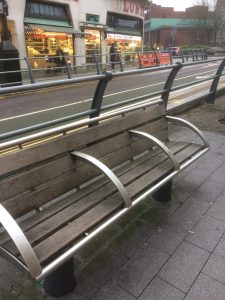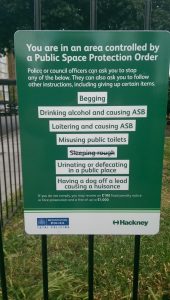By Jonathan Payne
Director of the People, Organisations and Work Institute (POWI) at DeMontfort University, UK
Introduction
The coronavirus pandemic is an event of truly historical proportions. It is difficult to predict how this will eventually play out, but there can be little doubt that even when the ‘war’ on the Covid-19 is finally won, its implications will be far reaching and will be with us for some considerable time. This will be no short-lived, ‘re-run of SARS’ as some might initially have hoped for, and, from a public health perspective, the big question will no doubt be: ‘did government act promptly and did it do enough?’ But the same question does not just apply to controlling the spread of the virus but also to dealing with its socio-economic ‘fall out’. The impact on politics, the economy, organisations, work, employment and society are already profound, and we are only at the beginning.
Research centres within DMU and BAL are starting to reflect on how research can help to address these manifold challenges from their different perspectives. POWI has specific expertise in key areas such as political economy, leadership and management, and the ‘Global South’, which make it ideally positioned to make a significant contribution to this agenda and link directly to BAL’s research theme of ‘urban living’.(i) Members of the Institute are already thinking about new projects related to Covid-19; the aim of this document then is to stimulate further reflection on how this might inform and shape research and debate going forwards.(ii)
Background
To say that coronavirus has dealt a hammer blow to the economy is something of an understatement. Whole sectors have virtually shut down, hotels, pubs, clubs, gyms and restaurants have closed, flights are grounded (as airlines look to government bail outs to avoid bankruptcy), high streets and shopping centres have become deserted overnight, now we are in ‘lockdown mode’. Financial markets have nose-dived, with global stock market values initially plummeting by nearly a third. Globalisation has come to a standstill. As it happened, it was not (as some believed) a robot that came to ‘steal your job’, but an invisible virus from somewhere called Wuhan.
Some states have responded with financial firepower. The US and European governments have pumped vast sums of money into the system through the policy-of-choice, namely ‘quantitative easing’ or, in layperson’s terms, printing money, even taking the unprecedented step in the UK of underwriting workers’ wages while large parts of capitalism ‘press pause’.
The current crisis arrives in the aftermath of the 2008-09 financial crash that had already exposed weaknesses in the system. However, while that was a crisis in the financial circuits of capital which threatened to spill over into the ‘real economy’, this time it’s the other way around.(iii) Western economies have become increasingly dependent upon consumption-led demand, and are already underwritten by huge sums of debt needed to keep this afloat.(iv) And this is precisely where the hammer blow has fallen, and fallen hard.(v)
The strategy is to try to support viable businesses through the crisis, ensure that consumption demand does not completely collapse, and is ready and waiting when the economy eventually ‘bounces back’. But no one knows when that might be, or how far it will rebound, with concerns that economies could be heading into a ‘slump’ and that unemployment could reach levels not seen since the ‘Great Depression’ of the 1930s.(vi) For sure, some sectors will not make up lost ground when things go back to ‘normal’ – customers who use to dine out once a month, don’t suddenly dine out more. Economies are also so heavily ‘financialised’ today that the ‘contagion’ between the real economy and financial markets runs both ways. When pubs and clubs close and airlines go bust, these effects have deep and wide ripple effects in the financial system.(vii)
To stave off such a scenario, western governments may need to contemplate even bigger measures to support their economies than those that have been attempted so far. However, pumping more money into the system can create problems, storing up debt, threatening currency stability, and ‘capital flight’. This normally calls for yet more government action and controls to deal with these problems. Indeed, when confronted with crises of such proportions, government has little choice but to step in and then step up. There is even talk in the UK of the state part-nationalising industries until such time as they might be returned to the private sector, as happened with some banks in the previous financial crisis.(viii) There is, however, an irony here – in many countries, those in political power are also those steeped in decades of neo-liberal ideology for whom state action is a last resort and grates against the political DNA.
Following the 2008-09 financial crisis, the European Central Bank and the UK responded by following up quantitative easing with austerity.(ix) The Covid-19 crises emerged at a time when that period in countries like the UK looked as if it might be drawing to a close and government was at least getting ready to spend more. Will we see another return to austerity ‘down the line’? At the European level, this looks far more difficult. The widespread nature of the pandemic means that it will not be possible to draw a cordon sanitaire around certain countries this time, as was the case before with Greece for example.(x) There may also be a ‘public reckoning’ with austerity, especially where countries are seen to have run down public health systems in ways which left them particularly exposed to the pandemic in order to fund tax cuts for the rich.(xi)
In terms of labour markets, the virus has exposed the gaps and holes in systems of regulation and social protection that are the legacy of neo-liberalism, extending far beyond the ‘gig’ economy, and which governments (even of neo-liberal persuasion) have had to try and patch up. The virus has also played out in highly unequal ways. A new term, ‘furlough’, has been imported into British employment law from the US. The government will provide an important safety net, paying 80 per cent of people’s wages, up to a maximum of £2,500. The aim is to encourage struggling organizations to ‘furlough rather than fire’. Similarly, some of those still
in employment have had the luxury of ‘home working’, avoiding the slog of the daily commute and have more time freed up in the working day. However, other ‘key’ workers (many of the them low-paid) are directly exposed to the virus, with questions over the protections that government or employers have put in place for them.(xii) For some, quarantining themselves and their families from the virus is either not an option or a luxury they cannot afford. Others have lost their livelihoods – in the UK, some self-employed have failed to qualify for assistance, and have had to fall back on a creaking welfare state. Some small businesses are staring ruin in the face as government loans appear too risky to take out. The pandemic does not discriminate but social and economic systems do.
The big debates in western countries are likely to be around whether the pandemic represents an existential threat to capitalism or a neo-liberal version, or versions, thereof. However, capitalism has proven incredibly adept at weathering even bigger threats in the past, and predictions of the imminent death of neo-liberalism in the aftermath of the financial crash proved premature. Anti-capitalist alternatives are vaguely specified and also have their own internal contradictions to deal with which may be no less profound, and some might argue, even more so. Furthermore, workers have ‘multiple interests’, and interests have to be researched at ‘the level of the real’ rather than merely imputed from theory.(xiii)
A ‘new politics’ or ‘new way of doing capitalism’(xiv), therefore, is likely to require immense intellectual resources. In the UK, the CBI and TUC now join one another on TV news programmes and seem to reach common ground in what almost smacks of ‘social partnership’ (as happened during the ‘Brexit debate’), and even a Conservative government ‘consults’ with the unions on next steps.(xv) It is possible that a more consensual politics might emerge – one that might coalesce around a more regulated, ‘stakeholder’ capitalism, which sees restraints on the market not as rigidities but as ‘beneficial’, identifies state investment as key for innovation, or even moves closer to a more socialised economy. Fixing ‘market failures’, which governments have got used to, now looks like small beer, and space may be opened up to think about a new role for government as an investment state and market-shaper.(xvi) That, or we go back to base. Meanwhile, darker forces lurk everywhere in the wings, with the virus likely to add to calls for more ‘nationalist’ constraints on labour mobility and tougher border restrictions(xvii )which would play into the hands of the populist Far Right.(xviii) Mobility is set to become an even greater battleground than before.
One can also add that the search for any ‘new growth model’ is no longer enough, even a progressive one based on principles of social justice that puts inequality into reverse and ratchets up social and labour rights.(xix) No longer enough because the real existential threat of climate change means that, notwithstanding technological advancement and ‘fixes’, continued growth and planetary sustainability are no longer reconcilable.xx If you cannot decarbonise fast enough, the only answer is to grow less (‘de-growth’). Transfers of wealth to those on lower incomes tend to boost consumption demand, as any Keynesian economics primer tells us, but now consumption is the bête-noir for any progressive politics. Indeed, if there is one positive to come out of the crisis, it is that the planet has had something of a breather for now. Witness, for example, the sharp decline in the Chinese emission of greenhouse gases.(xxi)
There is no doubt that this crisis will, for the foreseeable future, change the relationship between state, markets and civil society in ways which will certainly be important to map but which are hard to predict with any certainty. It is also vital that this debate does not fixate on developed economies as so often happens. The pandemic is global, as are its implications. Developing countries in the ‘Global South’, with much higher poverty, weaker public health systems, few social protections, and massive informal economies, will not escape and are likely to face even bigger challenges.(xxii)
Questions
The aforementioned issues are far reaching and beyond any single research project, but provide a background to engaging with questions generated by the coronavirus for those of us who research political economy, labour markets, organisations, management, work and leadership. Some examples are presented below as starters for discussion. These might apply at different levels (global, national, regional, local, the individual organisation), including comparative dimensions along similar lines, and will undoubtedly be elaborated upon.
· What does the future of work look like in ‘post-corona political economies’ given their different starting points? Do we see new ways of working and how far do they endure?
· What are the implications for national and local industrial strategies in the new era that can align with sustainable and inclusive economies? How does a city like Leicester respond for example?
· Will austerity return as governments with a depleted tax base try to pay off the costs of government ‘bail outs’?
· How do organisations respond to the crisis? What supports did they put in place for workers during and after the crisis, for example in dealing with mental health impacts? What contingency plans did they put in place, and how has contingency planning changed going forwards?
· Has the crisis served to re-energise the CSR debate? Will consumers reward those organisations that have acted responsibly and punish i.e. boycott well publicized acts of malfeasance e.g. Sports Direct?
· Which ‘business models’ prove most resilient – e.g. do low wage models wither or thrive?
· What impact has the coronavirus had on the HR function and HR professionals? What have organisations learnt about managing people at work through the epidemic?
· Has the widespread government and media use of the nebulous phrase ‘key worker’ altered the value society places on hitherto under-valued work e.g. cleaners, care workers and checkout operators? Does this change the policy discourse around ‘inequality’, ‘low pay’ and ‘job quality’? Does ‘work fit for heroes’ have any resonance and will it endure? Can these groups of workers use these narratives?
· What will be the long-term impact on ‘furloughed’ workers? Will the loss of organisational revenue spawn work downsizing and/or work intensification as organisations seek to rebuild their balance sheets?
· How did the coronavirus impact on leadership within organisations? Did some organisations deal with this better, and what role did leadership play, if any?
· How do organisations address feelings of insecurity and trust going forwards?
· If, as some predict, mass unemployment emerges, how do governments respond and how does the welfare system cope? Does a ‘universal basic income’ come back on to the agenda and would it work?
· How are different social groups affected by the crisis considering race, gender, and class, as well as economic migrants, gig workers and the self-employed?
· Does the crisis stimulate new ‘institution-building’ and, if so, what form does this take? How is it achieved and which social actors are involved?
· What forms of protest and resistance emerge in response to the economic impact of the pandemic, whether at work or through community-based action?
· How do these issues play out in ‘the Global South’ e.g. can you afford to stop working in the ‘informal economy’ even when a lockdown is imposed?
· any many more!
NOTES
i https://www.dmu.ac.uk/research/centres-institutes/powi/index.aspx
ii The focus here reflects my own expertise and limitations as a researcher of the UK and Western Europe, and I hope others will ‘bring in’ a more global perspective, particularly on the ‘Global South’.
iii See P. Mason, https://www.newstatesman.com/politics/economy/2020/03/coronavirus-crisis-economic-collapse-capitalism
iv See ‘The seeds of the next debt crisis’, https://www.ft.com/content/27cf0690-5c9d-11ea-b0ab-339c2307bcd4
v See D. Harvey’s blog, http://davidharvey.org/2020/03/anti-capitalist-politics-in-the-time-of-covid-19/
vi https://www.theguardian.com/world/2020/apr/08/coronavirus-putting-world-on-track-for-new-great-depression-says-who
vii See P. Mason: https://www.newstatesman.com/politics/economy/2020/03/coronavirus-crisis-economic-collapse-capitalism
viii See ‘UK government draws up plans to buy into airlines’ https://www.ft.com/content/1a52f686-6b00-11ea-800d-da70cff6e4d3
ix On European governments rescue packages, see https://www.theguardian.com/world/2020/mar/19/europes-economic-rescue-packages-worth-combined-17tn. On special assistance for hard hit European countries, see https://www.bbc.co.uk/news/business-52238932. On the UK’s rescue package, see https://www.bbc.co.uk/news/business-51935467. On the US rescue package, see https://www.theguardian.com/world/2020/mar/25/senate-passes-coronavirus-stimulus-package .
x As Jonathan Davies (CURA) pointed out to me.
xi See D. Harvey’s blog, http://davidharvey.org/2020/03/anti-capitalist-politics-in-the-time-of-covid-19/
xii See https://www.theguardian.com/business/2020/apr/02/royal-mail-staff-lack-sufficient-protection-from-coronavirus; and ‘Royal Mail is “putting profits before safety” say staff’ https://www.bbc.co.uk/news/business-52243179 xiii See P.K. Edwards, https://www.econstor.eu/bitstream/10419/197743/1/1048200574.pdf
xiv See M. Mazzucato, https://www.theguardian.com/commentisfree/2020/mar/18/the-covid-19-crisis-is-a-chance-to-do-capitalism-differently
xv See: https://www.independent.co.uk/news/uk/politics/coronavirus-jobs-workers-support-chancellor-rishi-sunak-boris-johnson-a9412821.html, and the TUC’s General Secretary, Francis O’Grady’s comments in: https://www.theguardian.com/money/2020/apr/04/coronavirus-business-finance-work-property#maincontent.
xvi See M. Mazzucato, https://www.theguardian.com/commentisfree/2020/mar/18/the-covid-19-crisis-is-a-chance-to-do-capitalism-differently xvii See ‘US-Mexico border: Thousands of migrants expelled under coronavirus powers’, https://www.bbc.co.uk/news/world-us-canada-52244039
xviii See: https://mg.co.za/article/2020-03-22-far-right-uses-coronavirus-to-scapegoat-refugees/ ; also: https://www.theguardian.com/world/2020/mar/19/america-far-right-coronavirus-outbreak-trump-alex-jones ; also: https://www.theguardian.com/world/2020/apr/05/police-investigate-uk-far-right-groups-over-anti-muslim-coronavirus-claims
xix For an excellent discussion of both the need for a new model in the UK and US and the challenges facing it, see the discussions by D. Coates in two SPERI papers: http://speri.dept.shef.ac.uk/wp-content/uploads/2018/11/SPERI-Paper-25-Building-Growth-Strategy-on-New-Social-Settlement-UK.pdf, http://speri.dept.shef.ac.uk/wp-content/uploads/2018/11/SPERI-Paper-32-Riding-the-Tiger.pdf
xx See A. Sayer, http://renewal.org.uk/files/Burton_Degrowth.pdf#page=40; also I. Gough (2017) Heat, Greed and Human Need: Climate Change, Capitalism and Sustainable Wellbeing (Cheltenham: Edward Elgar Publishing).
xxi See: https://www.independent.co.uk/environment/coronavirus-china-greenhouse-gas-emissions-climate-change-a9384346.html
xxii See: https://www.theguardian.com/global-development/2020/apr/09/coronavirus-could-turn-back-the-clock-30-years-on-global-poverty



